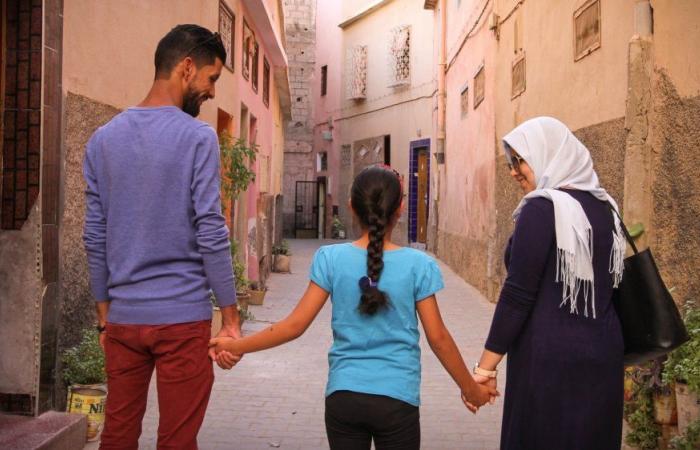This was precisely the case during the show “Mountassaf Talk», broadcast on Medi1TV. Anxious to offer a global overview of the issue, the TV channel gave the floor to representatives of two political groups, diametrically opposed both by their vision of society and by the conception they have of human rights. female. Thus, Maître Qouloub Feitah, lawyer and president of the Women’s Organization of the Authenticity and Modernity Party (PAM), and Maître Réda Bougmazi, lawyer and member of the general secretariat of the Justice and Development Party (PJD) each delivered their reading of the reform, its objectives and its prerequisites. Although the vision of the two parties agrees on the importance of the overhaul of the Moudawana, their differences on certain points have crystallized the antagonism of the two political groups.
Towards responsible modernization
Thus, while evoking the main orientations contained in the Royal Speech of 2022, Maître Qouloub Feitah emphasized the need to establish equality and the adaptation to social realities that any reform must bring while respecting the fundamental values of Moroccan society.
For this lawyer and president of the Women’s Organization of the Authenticity and Modernity Party (PAM), the elimination of early marriages is essential to protect the rights of young girls. The exception proposed for minors aged 17, under strict conditions, is however considered as a transitional measure to support societal change.
Often at the heart of debates, the question of polygamy has undergone notable developments in this reform project. In this regard, Ms. Feitah hailed as a great step forward the integration of the wife’s opinion prior to the conclusion of the marriage contract. This clause strengthens the position of women in marital relations, she specifies, explaining that polygamy would therefore only be authorized in specific cases, such as infertility, and with the approval of the judge.
Pleading for the obligation to recognize domestic work as an economic contribution to the creation of matrimonial assets, Maître Feitah describes this approach as an important step towards effective equality. Domestic work is an invisible but essential form of contribution to the family economy and deserves to be protected by law, she says, emphasizing that this is another key development that aims to protect the rights of wives, particularly in the event of divorce or death of the spouse.
Regarding the fate of housing after the death of the spouse, the provisions provided for by the current reform will guarantee the right to housing of the surviving spouse, thus reducing the risks of insecurity for the family and in particular the children, considers the lawyer. “This is a priority which would guarantee a roof for the surviving spouse, particularly in the event of complications in sharing the inheritance.”
For a secure anchoring of cultural and religious values
For his part, Maître Réda Bougmazi, lawyer and member of the Justice and Development Party (PJD), was more nuanced in his remarks, insisting on the need to respect religious principles and the authentic values of Moroccan society .
Although in favor of limiting early marriages, Mr. Bougmazi believes that setting the marriage age at 17 for minors must be strictly supervised by judges, taking into account local cultural and social contexts. Regarding the regulation of polygamy, while conceding that supervision is important, he insists that the latter must conform to religious standards and social values in order to avoid disrupting the balance of the Moroccan family, he specifies. Regarding the recognition of domestic work, Maître Bougmazi is open to proposals for reform while calling for a clear definition of the modalities to move away from any legal or financial abuse. It is crucial to break with any ambiguity in the definition of contributions in order to ensure fairness between the parties, he explains.
Furthermore, the member of the general secretariat of the PJD supports a reform aimed at protecting the right to housing for the surviving spouse, but recommends that this measure be applied while respecting the inheritance equity provided for by Sharia law.
A necessary dialogue for inclusive reform in accordance with Sharia law
By its richness and by the complexity of the axes of the envisaged reform, the version of the Moudawana thus finds itself at the crossroads between modernization and respect for traditions. While Master Feitah sees these reforms as an opportunity to move towards equality and the emancipation of women, Master Bougmazi insists on the need to maintain an anchor in values and traditions. This confrontation of ideas between the PAM and the PJD highlights the challenges and opportunities of a reform that aspires to establish a balance between societal developments and the cultural values of our country.






